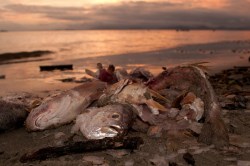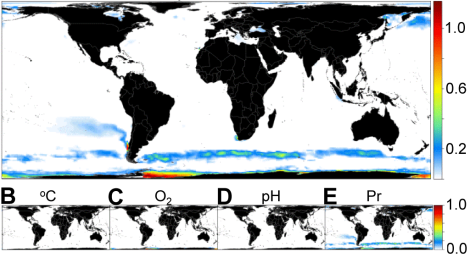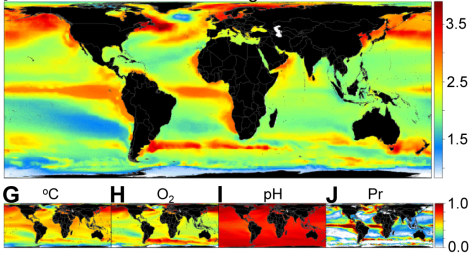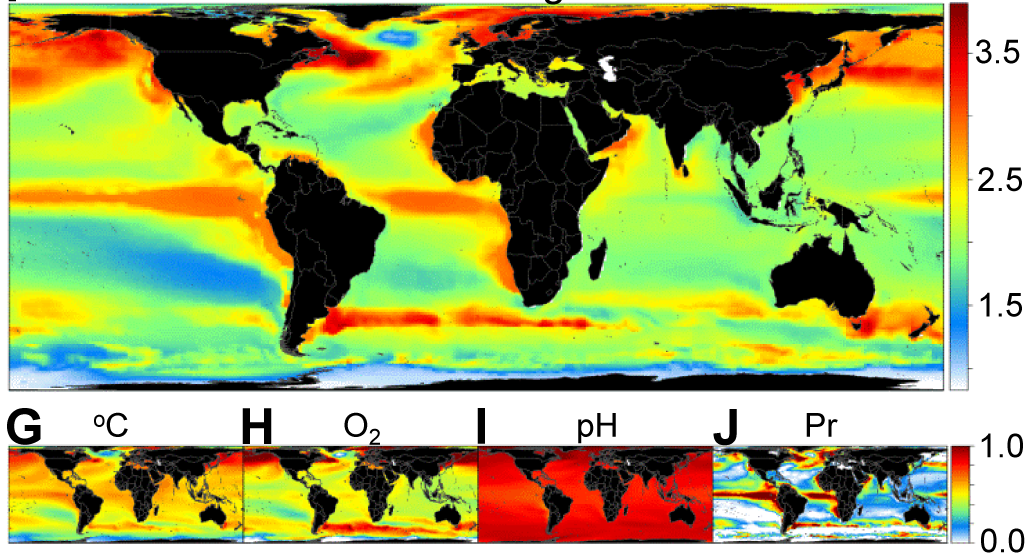
ShutterstockWhat’s going on out there?
Climate change is scrambling the oceans. It’s raising water temperatures, lowering pH levels, reducing oxygen availability, and driving down the size of wildlife populations the oceans can sustain.
A study published Tuesday in the journal PLOS Biology painstakingly chronicles many of the consequences of marine changes that the researchers describe as “unprecedented” during the last 20 million years:
Our results suggest that the entire world’s ocean surface will be simultaneously impacted by varying intensities of ocean warming, acidification, oxygen depletion, or shortfalls in productivity. Only a very small fraction of the oceans, mostly in polar regions, will face the opposing effects of increases in oxygen or productivity, and almost nowhere will there be cooling or pH increase. …
The social ramifications are also likely to be massive and challenging as some 470 to 870 million people – who can least afford dramatic changes to their livelihoods – live in areas where ocean goods and services could be compromised by substantial changes in ocean biogeochemistry.
It’s not all bad, according to the international team of researchers. Take a look at this chart from the study revealing cumulative net benefits expected by the year 2100 from changes in oceanic temperature (oC), oxygen content (O2), acidity level (pH), and productivity (Pr):

PLOS BiologyCumulative benefits of biogeochemical changes in the oceans to the year 2100. Click to embiggen.
Ah, that was kinda nice, wasn’t it. But if you want to stay in that happy place be sure to not look at the next chart, which, for comparison, reveals the cumulative negative consequences of all those biogeochemical changes:

PLOS BiologyCumulative negative impacts of biogeochemical changes in the oceans to the year 2100. Click to embiggen.
Yikes, that thing has more warning colors than a poison dart frog.
We’ll leave the final word for the researchers: “These results underline the need for urgent mitigation of greenhouse gas emissions if degradation of marine ecosystems and associated human hardship are to be prevented.”



